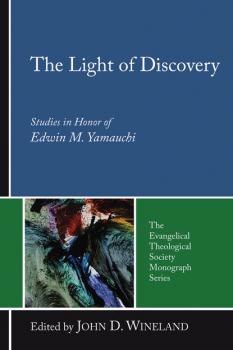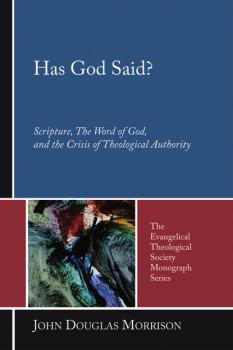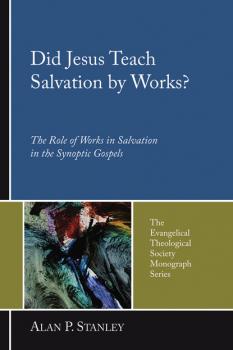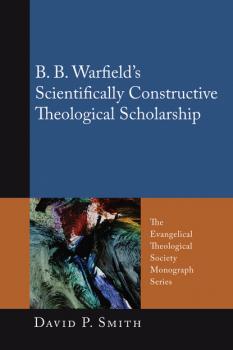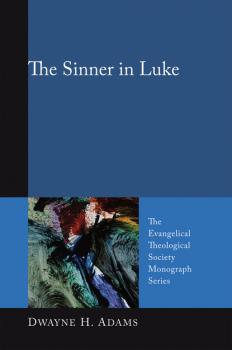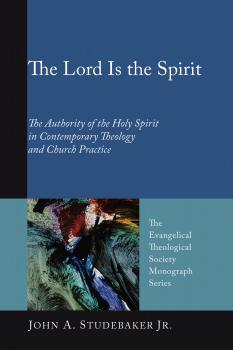ТОП просматриваемых книг сайта:
Evangelical Theological Society Monograph Series
Скачать книги из серии Evangelical Theological Society Monograph SeriesАннотация
Has God said? Has God actually spoken, declared himself and his purposes to us? Historically the Christian faith has affirmed God's redemptive, revelatory speaking as historical, contentful, redemptive, centrally in Jesus Christ and, under Christ and by the Spirit, in the text of Holy Scripture. But in the past three centuries developments in Western culture have created a crisis in relation to historical, divine authority. The modern reintroduction of destructive dualisms, cosmological and epistemological, via Descartes, Newton, Spinoza, and Kant have injured not only the physical sciences (e.g., positivism) but Christian theology as well. The resulting «eclipse of God» has permeated Western culture. In terms of the Christian understanding of revelation, it has meant the separation of God from historical action, the rejection of God's actual self-declaration, and especially in textual form, Holy Scripture. After critical analysis of these dualistic developments, this book presents the problematic effects in both Protestant (Schleiermacher, Bultmann, Tillich) and Roman Catholic (Rahner, Dulles) theology. The thought and influence of Karl Barth on the nature of Scripture is examined and distinguished from most «Barthian approaches.» The effects of dualistic «Barthian» thought on contemporary evangelical views of Scripture (Pinnock, Fackre, Bloesch) are also critically analyzed and responses made (Helm, Wolterstorff, Packer). The final chapter is a christocentric, multileveled reformulation of the classical Scripture Principle, via Einstein, Torrance, and Calvin, that reaffirms the church's historical «identity thesis,» that Holy Scripture is the written Word of God, a crucial aspect of God's larger redemptive-revelatory purpose in Christ.
Did Jesus Teach Salvation by Works? - Alan P. Stanley
Evangelical Theological Society Monograph SeriesАннотация
Jesus teaches that regardless of one's profession, if one does not demonstrate a changed life produced by God, one will not enter into heaven. Such a judgment will be made when Jesus returns and judges every person according to his or her «works.» While this may seem contradictory to some more well-known passages ruling out the role of works in salvation (e.g., Rom 3:21-4:25; Gal 2:16-21; Eph 2:8-9), there is every good reason to understand that Jesus' teachings complement such passages. The works that admit one into heaven are not works produced by the flesh before conversion but works produced by God after conversion. They will fundamentally be characterized by a life of discipleship, love for others, and endurance in faith and obedience, and will therefore serve to confirm that one indeed did have a relationship with God during one's life.
The Contemporary Church and the Early Church - Группа авторов
Evangelical Theological Society Monograph SeriesАннотация
As «evangelicals» face future challenges, many are turning back to the ancient church for inspiration. But these ancient-future approaches remain diverse and sometimes even at odds with one another. This volume demonstrates and analyzes the complexity of such contemporary church-early church engagements. Six scholars share diverse insights from the Patristic period, including lessons on evangelism and discipleship, community formation and maintenance, use of the «rule of faith,» the preaching of social ethics, responses to cultural opposition, and Christological development. The volume closes with two critical responses, from confessional Lutheran and Baptist perspectives. These collected essays will remind contemporary readers of the importance of a reflective and responsible ressourcement of Patristic wisdom.
With contributions from:
Rex D. Butler Francis X. Gumerlock Bryan M. Litfin Brian J. Matz W. Brian Shelton Edward Smither Glen L. Thompson
With contributions from:
Rex D. Butler Francis X. Gumerlock Bryan M. Litfin Brian J. Matz W. Brian Shelton Edward Smither Glen L. Thompson
B. B. Warfield’s Scientifically Constructive Theological Scholarship - David P. Smith
Evangelical Theological Society Monograph SeriesАннотация
B. B. Warfield, the «Lion of Princeton,» is perhaps America's most prolific and preeminent biblical and theological scholar, and yet he has been largely misunderstood and misrepresented. In this landmark work, David Smith penetrates to the defining features of Warfield's thought and helps us understand its revolutionary character. Warfield's detractors have maligned his thought as static and beholden to an outdated epistemology, yet Smith debunks this myth. Placed within his historical context, we discover Warfield expressing the organic and dynamic nature of truth, overcoming the subject-object dilemma that plagues Western epistemological rationalism and mysticism, and all through his explaining the doctrinal system warranted by the Bible. Theological scholarship and American church historiography will have to reckon with this fresh and much-needed apologetic on America's preeminent apologist.
Аннотация
This study examines the use of the term «sinner» in Luke-Acts. There is at present no scholarly consensus on the identity of the «sinner» in the Synoptic Gospels. Although the term is important in the Gospel of Luke, few works target the role of the sinner in it. Even fewer address the curious absence of «sinner» in Acts.
Luke's narrative of Jesus' mission to «sinners,» together with the comments about Gentiles in the gospel, prepare readers for the mission to Gentiles in Acts. Luke provides a link for readers by demonstrating how a Jewish religious sect made up of fishermen, toll-collectors, and «sinners,» who claimed to have found the Messiah, became a religion with a wide Gentile following. In his use of the term «sinner,» Luke suggests that «repentant Jewish sinners» and «repentant Gentile» followers of Jesus represent a fulfillment of God's promise of universal salvation.
Luke's narrative of Jesus' mission to «sinners,» together with the comments about Gentiles in the gospel, prepare readers for the mission to Gentiles in Acts. Luke provides a link for readers by demonstrating how a Jewish religious sect made up of fishermen, toll-collectors, and «sinners,» who claimed to have found the Messiah, became a religion with a wide Gentile following. In his use of the term «sinner,» Luke suggests that «repentant Jewish sinners» and «repentant Gentile» followers of Jesus represent a fulfillment of God's promise of universal salvation.
Аннотация
Although the doctrine and work of the Holy Spirit is no longer being ignored in theology (as was often the case in centuries past), the authority of the Spirit remains essentially undefined. The need for such a definition, however, is urgent. Some dangerous trends in the contemporary understanding of the Spirit have developed (trends that can only be exposed through careful exegesis of Scripture and theological clarification). Indeed, some contemporary models often leave us with a nonauthoritative «Spirit» predisposed toward universalism, experientialism, or panentheism.
This work will attempt to show that the nature of the Holy Spirit's authority can be clearly defined through biblical and systematic theology. When we investigate the Spirit's place within the pattern of divine authority, as specified in Scripture, we discover that the Holy Spirit indeed possesses a unique authority as divine Person, Christ's Executor, Teacher, and Governor of the Church.
Such a work will be helpful for both the theologian and the pastor. First, definitions of the Spirit's authority will be developed through historical, exegetical, and theological analysis. Then these definitions will be applied to specific church practices, including hermeneutics, church structure and guidance, and Christian spirituality. A response will also be given to those «practical theologies» that are subtly diminishing the Spirit's authority in relation to the contemporary church.
This work will attempt to show that the nature of the Holy Spirit's authority can be clearly defined through biblical and systematic theology. When we investigate the Spirit's place within the pattern of divine authority, as specified in Scripture, we discover that the Holy Spirit indeed possesses a unique authority as divine Person, Christ's Executor, Teacher, and Governor of the Church.
Such a work will be helpful for both the theologian and the pastor. First, definitions of the Spirit's authority will be developed through historical, exegetical, and theological analysis. Then these definitions will be applied to specific church practices, including hermeneutics, church structure and guidance, and Christian spirituality. A response will also be given to those «practical theologies» that are subtly diminishing the Spirit's authority in relation to the contemporary church.

